The Room Where It Happens
No one else was in
The room where it happened
The room where it happened
The room where it happened
No one really knows how the game is played
The art of the trade
How the sausage gets made
We just assume that it happens
But no one else is in
The room where it happens.
“The Room Where It Happens” From Hamilton
Written by Lin-Manuel Miranda
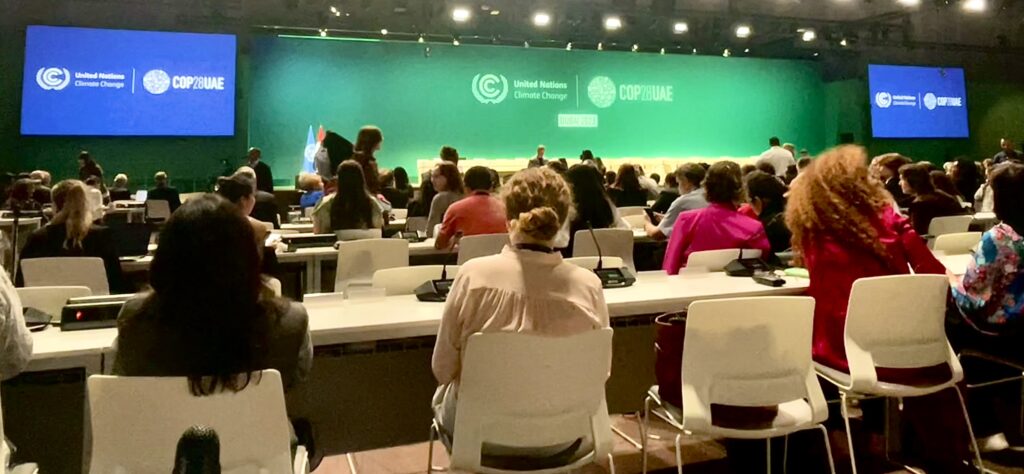
Prior to this year’s COP28 here in Dubai there was rightfully a great deal of concern expressed about oil industry lobbyists trying to increasingly control the world’s annual climate conference, of various countries working to use the United Nations meeting to greenwash their polluting ways, of a lack of transparency, and of conflicts of interest galore. Many of those same concerns have been amplified since COP28 began earlier this week and as I wrote in an earlier post COP28 stands to be controversial for many reasons but not reason enough to avoid the Conference, debate, and negotiations.
To avoid the worst impacts from our climate crisis, the science makes it clear to anyone interested in listening, the world must transition away from the fossil fuels that society has relied upon since the dawn of the industrial revolution to sustainable, clean energy. That transition will not happen overnight, but it must commence on a widespread global basis and then in the years ahead it must accelerate before it’s too late (and based on every scientific indication, study, analysis, and report, we are at the tipping point of “it’s now or never” to move the transition forward in a meaningful, measurable manner).
“We look forward to being there. Our absence from the discussion will not serve the interest of our islands.”
Ambassador Samuelu Laloniu
Special Envoy of Tuvalua
Consider, for example, small island nations, places all over earth that are at the real risk of extinction due to sea level rise caused by fossil fuels warming our atmosphere and oceans and the resulting impact of those temperature increasingly melting glacial ice. Places like the Florida Keys, where I am from. And places like the Seychelles (that I wrote about while at COP27 in Egypt last year), Samoa, or Tuvalu, or the other members of the Alliance of Small Island States as examples. Those nations are rightfully here because they are desperate to find solutions along with the almost 200 countries and approximately 97,000 people wanting… no, needing to be part of the most important discussion humanity might ever face.
When asked why he’s here in light of some of the concerns people have expressed about this COP, here’s what the Chairman of the Small Island’s Delegation, Ambassador Fatumanava-o-Upolu III Pa’olelei, had to say: “This is an issue that requires us all to work together. Sometimes its perhaps more important to engage with those that do not necessarily share your perspective.” I could not agree more with the Ambassador.
Logically, every fossil fuel producing nation and business within the oil and gas industry has a direct, deep vested interest in protecting their revenue and profits. Whether your country has built kingdoms and castles from oil proceeds, or you operate a multi-national corporation that drills, pumps, or transports fossil fuels, builds gas oriented equipment or, for that matter, runs the local corner gas station or natural gas utility, every stakeholder on the planet is going to fight to keep what they have built.
It is indisputable that there are economies all over the world that will be impacted by a transition away from fossil fuels and to sustainable energy. Same with countless organizations, their shareholders, and employees. The transition will be an extraordinarily heavy lift, but it’s one that our society must collectively take as the down sides to not transitioning our approach to energy are far more dire than the inconvenience, perceived pain, or short-term suffering that we must temporarily navigate.
According to the data analytical firm Precedence Research, the global fossil fuel market in 2022 was valued at $7.2 Trillion (USD) and is predicted to grow to nearly $12 Trillion by 2032. The United States accounts for the largest segment of that market, an estimated 36%.
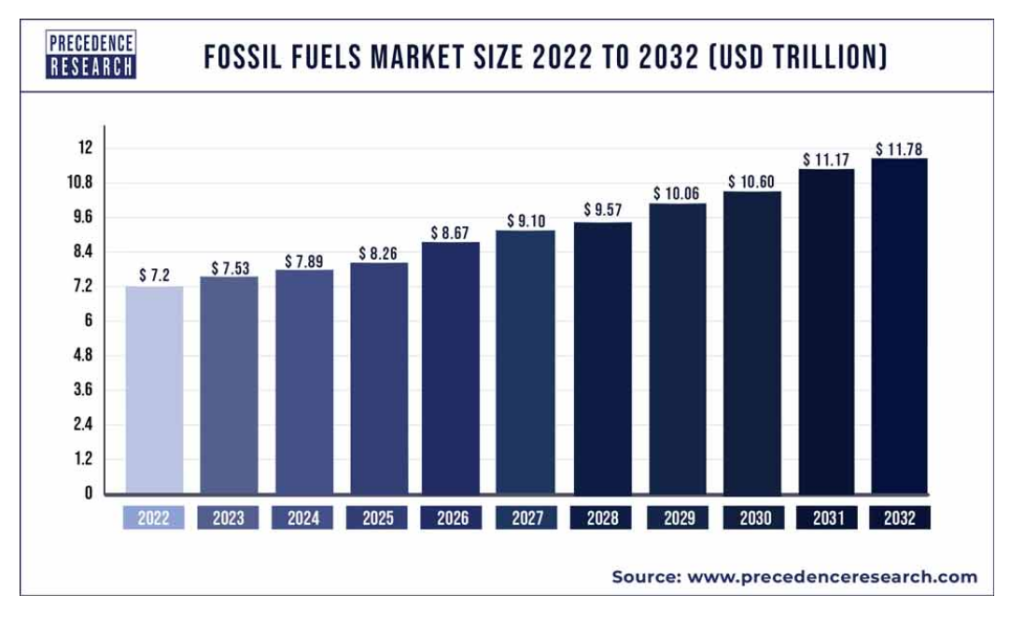
In the United States, where I live, the market for fossil fuels is currently estimated at $1.8 Trillion (2022) and that is expected to increase to an estimated $2.94 Trillion by 2032. By any measure it is a massive industry that will take decades to transition, but is a transition we must begin in earnest now.
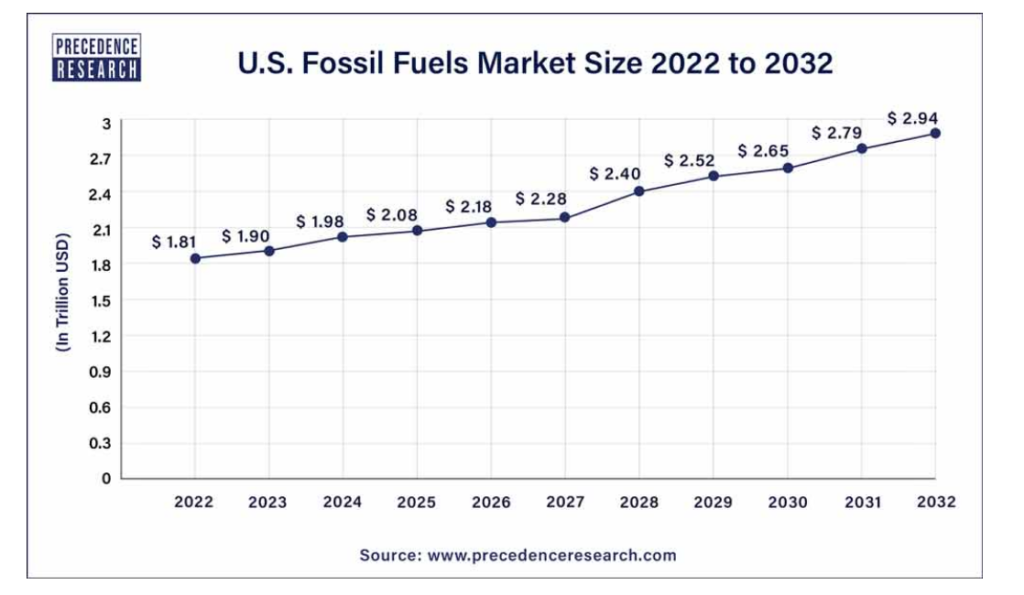
With that much revenue at stake, is it honestly of a surprise to anyone that those with a vested interest in maintaining the status quo would want to protect their turf by delaying or avoiding the transition to sustainable energy? Nope.
And should it surprise any of us that some of those same stakeholders will resort to nearly any tactic necessary including lying, cheating, or deceiving anyone that will listen in hopes of delaying or avoiding the transition that without evolution threatens their way of life? Again, nope.
Logically, we should understand that there are many nations and businesses that struggle with the idea of transitioning away from fossil fuel, with what must honestly and openly be called an economic threat. And, just as logically, many (perhaps most and maybe even all) of those so threatened by the coming transition will wage outright wars for their survival by fighting every single step of the way to continue profiting from an antiquated fuel source rather than looking for new ways to participate in what I call the “sustainable energy economy.” And I expect that some of those fights will be veiled in greenwashing attempts while others will be financed by lavish lobbying or sketch tactics like creating a carbon credit market rather than taking the actual steps to solve the problem by reducing and eliminating fossil fuel production. And, most certainly, some will or have become more nefarious and, in time, even violent in the most extreme cases given the high economic stakes involved.
As we stand here today at the dawn of the sustainable energy economy, none of the lobbying, greenwashing, deception, or the rest of that noise should surprise any of us. Those countries that profit from oil and the businesses that harvest and sell it are going to vigorously fight back. I’ve seen that up close in my own community from utilities or others with vested interests in protecting their investments and profits and, yes, it’s here at COP28 with greenwashing and lobbying taking place in plain sight. But should we run from the opposition or avoid the fight by not being here? I say no. Heck no!
In fact, we must be here and be prepared to discuss, negotiate, and, yes if needed, battle. Those of us fighting for the transition are, I am certain, on the right side of history; thus, we must be engaged on the front lines of this fight or else we might as well concede by staying home… and that’s just not my style.
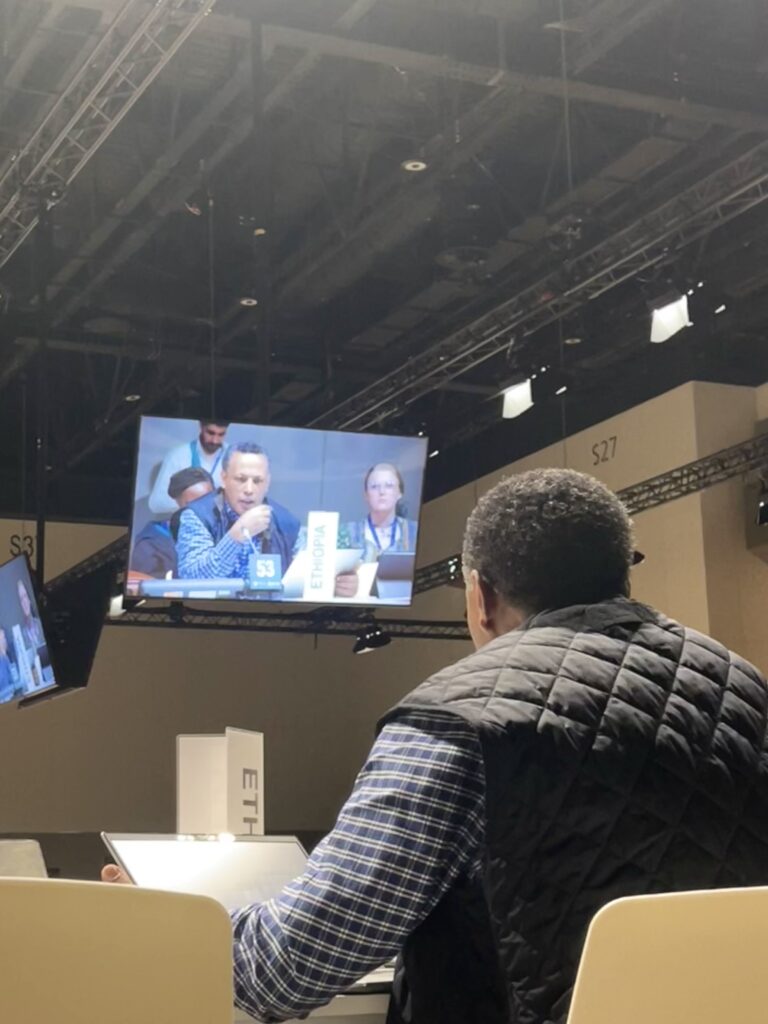
And so I am here in Dubai, as I was in Egypt last year, despite the greenwashing, lobbying, and all of the other forces working against the transition. Why? Because it’s a profound way to learn. It is an excellent way to connect with others from around the world that are intent on solving our climate crisis. And I feel that it’s important to be directly engaged with others on both sides of the debate to find solutions in hopes that, just maybe, we can “move the needle” as my friend David Smith, the founder of CAVU, likes to say. So, here I am (that’s me in the brown shirt at the biggest negotiating table I’ve ever seen, in this case during the Report of the Global Environment Facility to the Conference of the Parties and guidance to the Global Environment Facility (Agenda Item COP 8(d)).
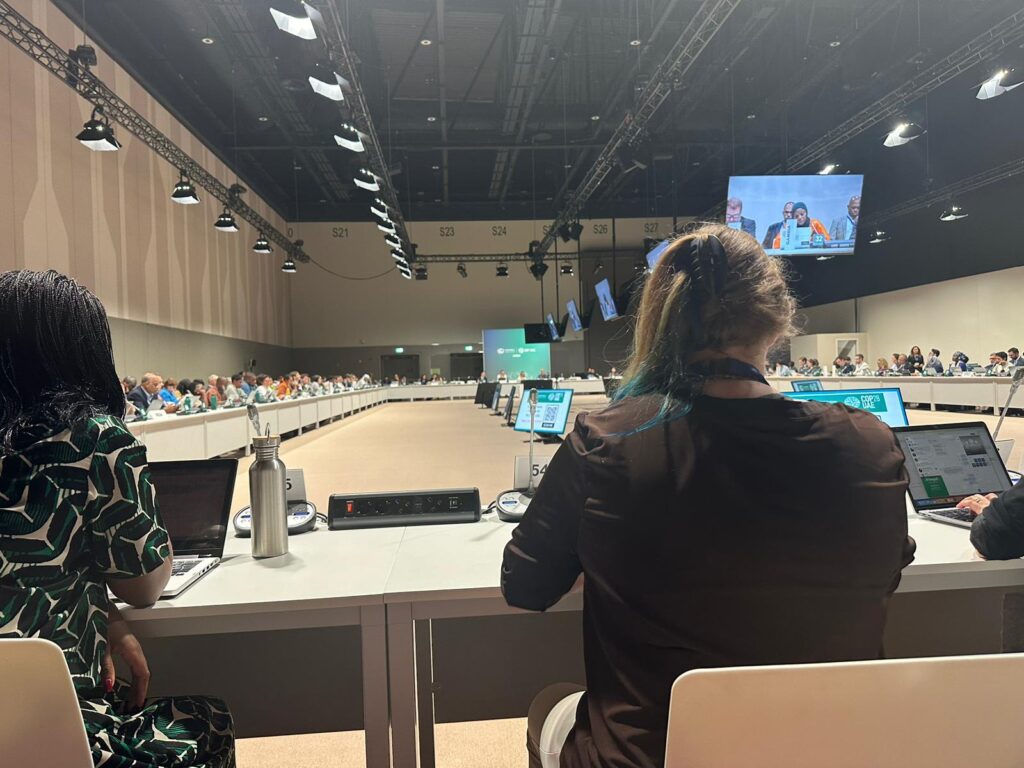
And here I am at the Women Building a Climate-Resilient World panel discussion, moderated by former Secretary of the United States Hillary Clinton.
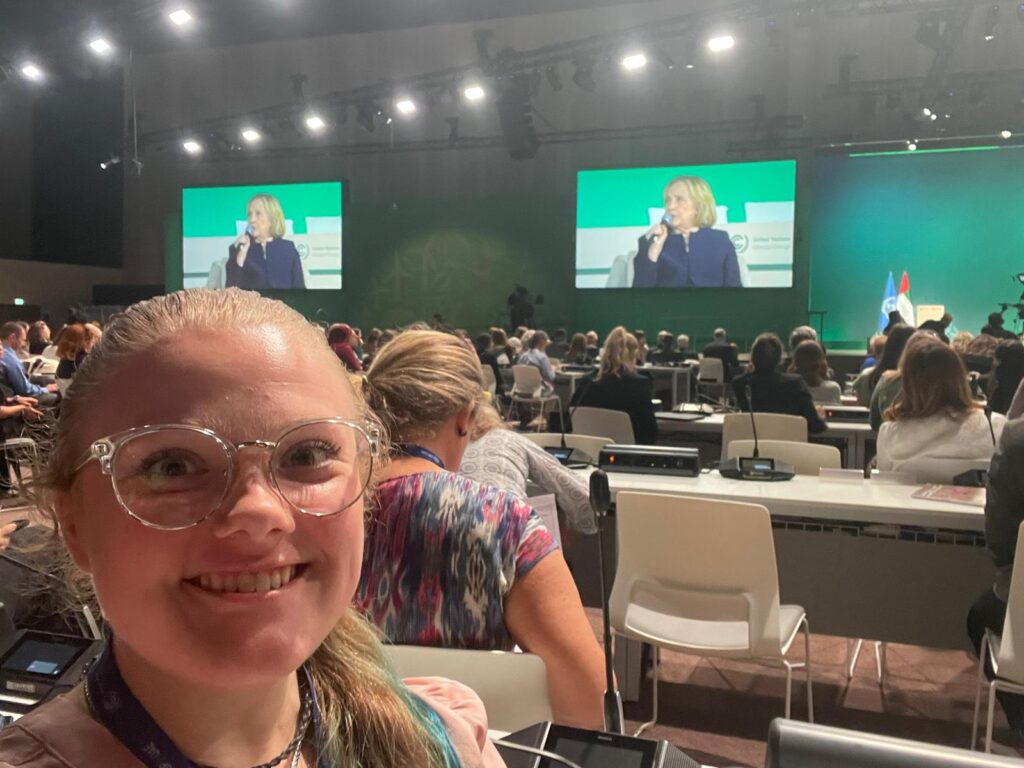
And, yes, I could include more examples from more meetings here at COP28 because I have been running around from meeting to meeting every day like a crazy woman. Like, to quote another Lin Manuel Miranda song from his opus Hamilton, “I am running out of time.” Because we are.
But the point here is that while some prominent politicians, environmental leaders, and activists have dismissed COP28 and stayed home over concerns of greenwashing, fossil fuel lobbying, and so on, I am here to learn, observe, speak up/out, and collaborate with the majority of good people at the Conference that share my concern that our climate crisis threatens our future in ways that only world wars or some dystopian science fiction story presented in the past.
Avoiding the fight and discussion is not a solution.
We need to be “in the room where it happens.“